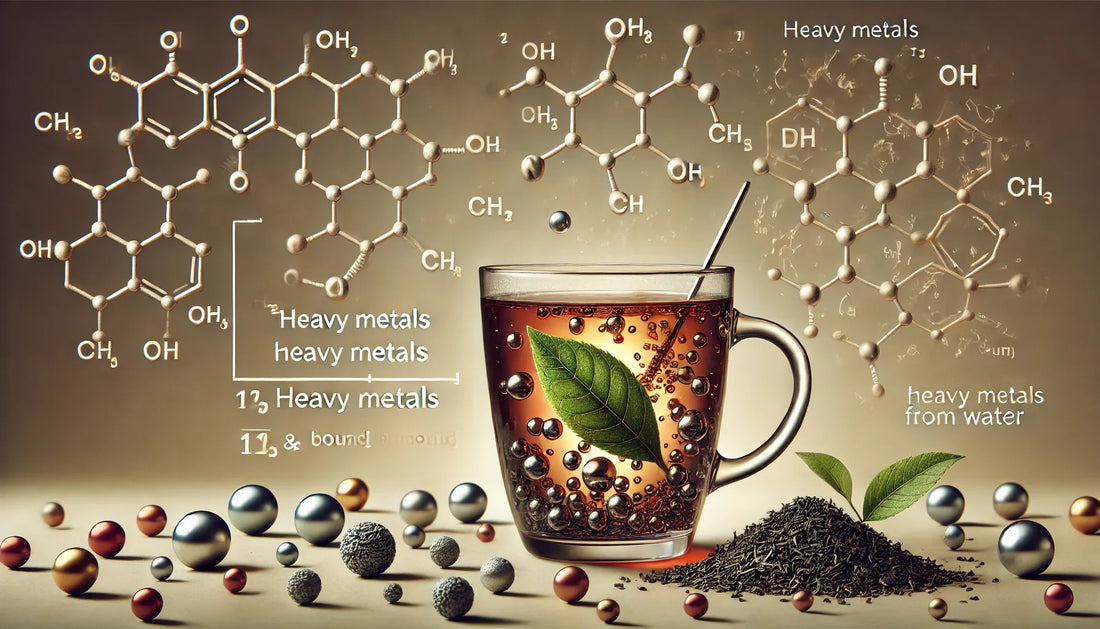
Brewing Tea Removes Heavy Metals From Water
Share
Scientists at Northwestern University have discovered that brewing tea can help remove harmful heavy metals, such as lead and cadmium, from water. When tea leaves are steeped, they release natural compounds known as polyphenols and other organic molecules that can attract and bind to these metal particles, preventing them from remaining in the water. This process, known as chelation, helps to trap the metals and reduce their concentration in the liquid.
The study found that different types of tea vary in their ability to remove heavy metals. Black, green, and white teas were the most effective, with black tea showing the strongest ability to reduce metal content. In contrast, herbal teas like chamomile and rooibos had a weaker effect. For example, when black tea was brewed for five minutes, the amount of lead in the water decreased by about 15%. The longer the tea was steeped, the more effective it became at capturing these contaminants.
Researchers believe this effect occurs because of the unique chemical properties of tea, which allow it to bond with heavy metals and pull them out of the water. However, while this process can help reduce exposure to certain toxins, it is not a replacement for proper water purification methods. Instead, it suggests that regularly drinking tea may offer an additional, natural way to minimize the intake of harmful substances found in contaminated water. This discovery adds to the growing list of tea’s health benefits and highlights its potential role in improving water quality in a simple and accessible way.
_____
This article based on the next study: https://www.theguardian.com/science/2025/feb/25/brewing-tea-removes-heavy-metals-water-study
